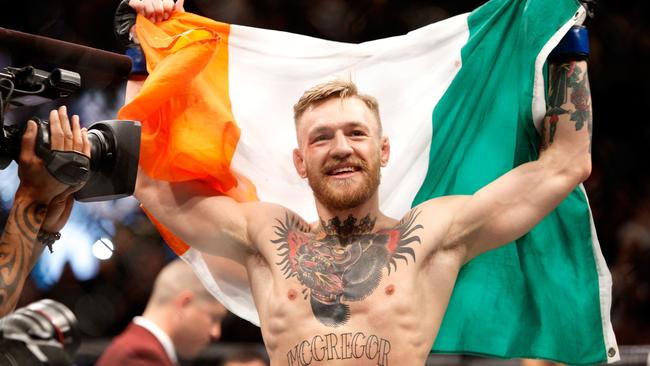
Have you tweeted that photo of Aylan Kurdi yet? He’s the tragic three-year-old Syrian whose body washed up on a Turkish beach after his family tried to get to Greece in a dinghy. Everyone’s tweeting the sad pic of his lifeless body, his head poignantly buried in the sand. You haven’t tweeted it? Why not? Don’t you care?
Maybe you’ve taken a photograph of yourself holding up a piece of paper that says “Refugees welcome”. Everyone’s doing that, too, making sure their face can be clearly seen and that they’re pulling exactly the right expression: pained, concerned, not too hammy. You haven’t done that, either? What’s wrong with you?
You’ve surely offered to put up some refugees in your home? Celebs and the twitterati are doing that, as are leading European politicians and activists. Amnesty supporters have marched wearing huge, multicoloured sandwich boards saying: “My door is open to refugees.” Why multicoloured? So that everyone will see them, of course. What’s the point in making a public spectacle of your pro-refugee decency if the public doesn’t notice it?
You haven’t done that either? Then you’ve failed the social-media test. You have missed an opportunity to let the world know what a sensitive, emotionally literate being you are.
The refugee crisis engulfing much of the world, especially Europe, hasn’t only shown that Syria continues to fall apart and that many people are so desperate to escape that they will cross furious waters in tiny boats and walk for kilometres through eastern Europe to the west.
It also points to a crisis of solidarity. It speaks to the demise of the old, rational offering of support to those who need it and its replacement by a new virtue-signalling where the aim is to raise awareness about one’s own virtues rather than about other people’s suffering.
The virtue-signalling kicked off when that photo of poor little Aylan first appeared in the press. Some European papers splashed the photo on their front pages. Worse, the twitterati turned the image into a signifier of righteousness: anyone who’s anyone was tweeting it, alongside statements “This made me weep so hard” — the operative word being me.
The photo was turned into heartstring-tugging cartoons, cynically collected together by Buzzfeed in a listicle headlined “17 Heartbreaking Cartoons From Artists All Over the World Mourning the Drowned Syrian Boy”. It was made into a meme, Aylan’s image stamped with political messages about why we must open borders. An actress in Morocco and 30 of her friends re-enacted Aylan’s death: they donned red T-shirts, what Aylan was wearing when he died, and played dead for the cameras on a beach — a child’s death turned into look-at-me performance art.
There was an ugly streak of moral pornography to this poring over an image of a dead child. “Look how tragic he is. Look how saddened I am.” Like moral vultures, the media and twitterati gathered around Aylan’s body, hoping to look good by expressing their sorrow over his awful fate.
After the exploitation of tragic Aylan came the obligatory photo-with-a-message craze. This is a peculiar 21st-century phenomenon, where it’s not enough simply to say something — you must also show your sorrowful face alongside your statement.
From students who take photos of themselves holding signs complaining about right-wing wickedness to Michelle Obama’s much-tweeted pic of herself holding a bit of paper saying “Bring Back Our Girls” — after Nigerian girls were kidnapped by the misogynists of Boko Haram — the incorporation of one’s own sad-eyed face into the display of political statements speaks volumes about the narcissism of our age.
“Refugees welcome”, said these placards next to woeful faces. Others, such as Bob Geldof, went further and declared they would throw open their homes to refugees. They didn’t say for how long they would do this or how it might be funded. But practicalities be damned — this was a performative exercise, an act of moral preening, not a clearly thought-through solution to the refugee crisis.
If the narcissism of the post-solidarity, internet-fuelled virtue-signallers was simply about saying “Look at me!”, that would be bad enough. But there’s a far worse problem: the wrenching of the refugee crisis from its political context and its transformation into a hyper-moralised drama starring good Westerners and childlike, victimised Syrians muddies reality, making it harder for us to understand what is happening and what we might do about it.
So the focus on the children of the crisis, especially Aylan, gives the impression that huge numbers of dependants are trekking to Europe. A journalist in Britain is making a charity single for the refugees, mirroring Band Aid, which was designed to save desperate African children from starvation.
But the refugees are far from helpless, hapless infants. It is estimated that 75 per cent of them are young, fit, able men, searching for work. This is why they’re bypassing Hungary and Austria in favour of the economic powerhouse of Germany: because they aren’t only fleeing war; they’re also being lured by the possibility of employment. There’s nothing wrong with that — it’s cool and aspirational — but it runs counter to the pitying, child-obsessed narrative that has built up around the refugees.
What’s more, the reduction of a huge exodus of people to an opportunity for us in the West to get our moral rocks off actively discourages honest, frank debate about what is happening.
As it happens, I’m pretty much an open-borders person; but we need open debate, too, so that everyone, not just right-thinking media folk, have their say on this massive movement of people into our countries.







To join the conversation, please log in. Don't have an account? Register
Join the conversation, you are commenting as Logout